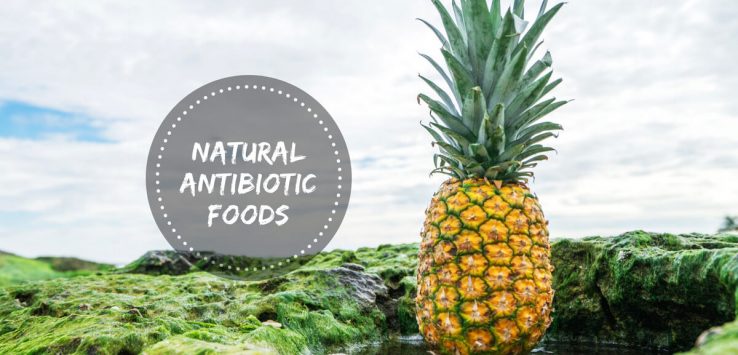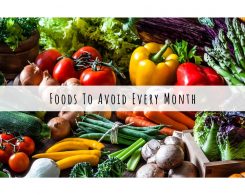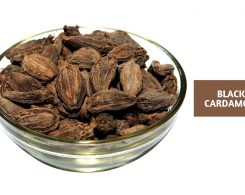- 4Shares
- 10 Best Antibiotic Foods
- 1. Garlic Is Antibacterial.
- 2. Pineapple Treats Intestinal Worms.
- 3. Cayenne Pepper Is One Of The Best Natural Antibiotics.
- 4. Pomegranate Is A Potent Antioxidant.Â
- 5. Ginger Helps Treat Infections.
- 6. Echinacea Relieves All Allergies.
- 7. Honey Is Among The Best Antibiotic Foods.
- 8. Turmeric Is An Ancient Medicine.Â
- 9. Thyme Oil Has Medicinal Uses.
- 10. Olive Leaf Extract Is An Effective Antibiotic.
Antibiotics are over-the-counter medicines that heal infections by either killing the bacteria or inhibiting their growth. However, prolonged usage may either create resistance or negatively affect your well-being. But, natural antibiotics (antibiotic foods, herbs as well as oils) contain antibacterial and antimicrobial properties to fight harmful viruses and other all possible dangers.
10 Best Antibiotic Foods
1. Garlic Is Antibacterial.
The phytochemical ‘allicin’ present in garlic is one of the best and natural antibiotics. Garlic has antibacterial, anti-fungal as well as antiviral properties. Therefore, it has the ability to demolish any kind of viral or fungal infections.
2. Pineapple Treats Intestinal Worms.
Being a great source of vitamin C, pineapple is a worthy alternative to antibiotics. It has anti-inflammatory as well as antimicrobial properties to help get rid of stomach worms and bacteria.
3. Cayenne Pepper Is One Of The Best Natural Antibiotics.
The cayenne pepper essential oil has an anti-fungal as well as an antibacterial impact on the body. This helps treat infections like vulvovaginitis in women. However, the oil should first be diluted or be used with a carrier oil to balance its spicy as well as stingy nature.
4. Pomegranate Is A Potent Antioxidant.
Vitamin C, K, B5, calcium, potassium, as well as antioxidants are some of the virtues that make pomegranate one of the best and natural antibiotics. It also has antimicrobial and anti-inflammatory properties. Pomegranate oil can kill staphylococcus microbes that are resistant to certain over-the-counter antibiotics. And, it prevents the occurrence of rashes as well as skin boils.
5. Ginger Helps Treat Infections.
Today’s unhealthy lifestyle along with a poor diet get us at the risk of developing pathogens. These may cause food poisoning – however, ginger is a great saviour. It’s a potent alternative to antibiotic medication and helps kill the harmful virus as well as bacteria in the body.
6. Echinacea Relieves All Allergies.
Echinacea is a powerful herb with antibacterial properties. The herb has been used for treating common colds as well as flu. Studies have shown that the herb is capable of fighting Streptococcus pyogenes bacteria that causes strep throat.
7. Honey Is Among The Best Antibiotic Foods.
Manuka honey is famous for its high antioxidant content and antibiotic properties. An essential enzyme in honey releases hydrogen peroxide, thus fighting off bacteria as well as controlling further growth.
8. Turmeric Is An Ancient Medicine.
It is no secret that turmeric has been used for centuries to heal a wide variety of issues like cuts, wounds, infections, rashes and so on. All such qualities make the spice one of the widely used natural antibiotics.
9. Thyme Oil Has Medicinal Uses.
The essential oil extracted from thyme has antimicrobial properties. It helps treat acne, inflamed skin, whooping cough, excessive urination, flatulence as well as bronchitis. But, keep in mind to not consume the oil and rather massage it over the skin after diluting.
10. Olive Leaf Extract Is An Effective Antibiotic.
Having disease-fighting properties, the olive leaf extracts are potent antioxidants as well as anti-inflammatory in nature. If you cannot consume a significant amount of olive oil in your daily routine, the extracts are beneficial. Since elenolic acid is found in olive leaf extract, it acts as powerful and natural antibiotics,
Note: Articles on Ayurvedum are solely for the purpose of sharing the goodness of Ayurveda and bringing awareness on natural and healthy living. Please do not substitute it for professional medical advice. Ingredients discussed can interfere with certain medications. So, before using anything to treat yourself, always consult an Ayurveda doctor or practitioner.






Leave a Reply